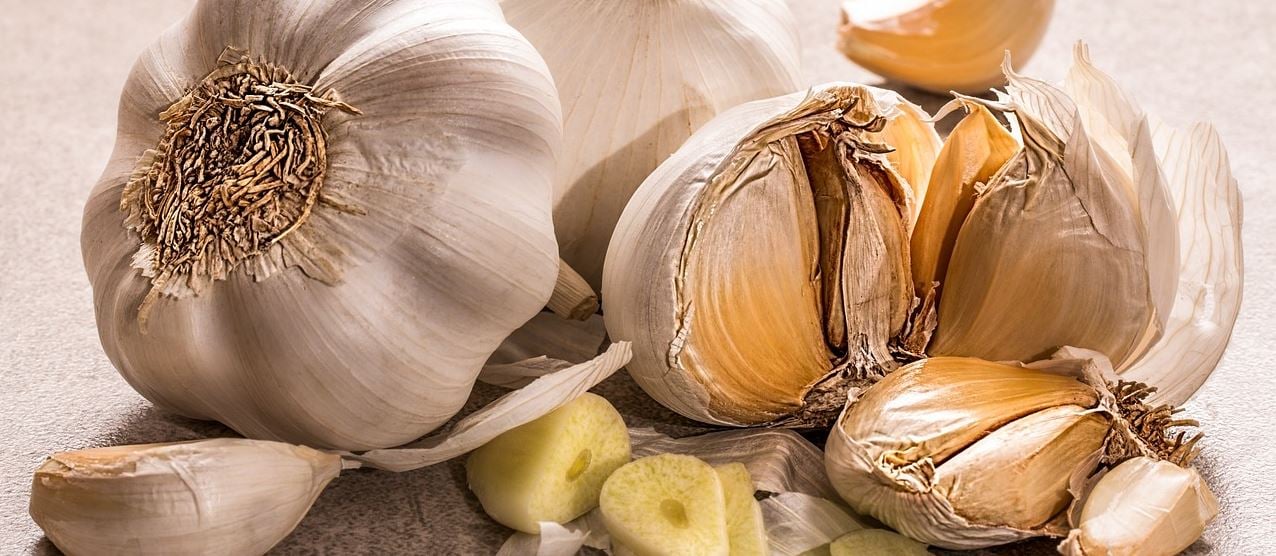Health Benefits of Rosemary Leaves

Rosemary leaves are a fragrant, woody herb used for centuries for its various health benefits. In its natural habitat, this plant typically grows in areas like the Mediterranean, Asia, and different African countries belonging to the Mint family. Keeping Rosemary at home is beneficial as it enhances food taste and has medicinal properties.
17 Amazing Health Benefits of Rosemary Leaves
Rosemary leaves is a popular herb known for its aromatic flavor and medicinal properties. Here are 17 health benefits associated with rosemary leaf:
1. Anti-inflammatory properties:
Rosemary leaf contains compounds that have anti-inflammatory effects. It helps reduce inflammation and alleviate symptoms like arthritis and asthma. Rosemary also appears to be a natural astringent, which can help stimulate hair growth.
2. Digestive health:
Rosemary has been used for centuries to combat digestive issues. Rosemary is not just known for its culinary benefits. Still, it also has many medical benefits, such as fighting against bacteria and yeast in the gut, promoting digestive enzymes, and reducing bloating.
3. Memory enhancement:
This herb has been used for thousands of years to improve cognitive function and memory. Rosemary leaf's aroma enhances concentration and focus, making it beneficial for studying and mental performance.
4. Antioxidant activity:
The beneficial properties present in Rosemary can counteract inflammation and harmful toxins in the body, leading to improved health.
These substances act as a preventive measure by inhibiting the formation of destructive free radicals that can injure cells and cause prolonged illnesses. Rosemary's anti-inflammatory properties can also help to reduce pain and inflammation in the body.
5. Immune system support:
Within the Rosemary leaf, some compounds fight against harmful microorganisms and viruses. One benefit is enhancing the immune system, which can diminish the risk of infections. Facilitating the production of white blood cells can contribute to maintaining your body's health.
6. Respiratory health:
Rosemary leaf has been used for centuries to treat many respiratory conditions. It is a plant with a minty scent and can be used as an essential oil, tea, or in a gargle. Its active ingredient is rosmarinic acid, which acts as an antioxidant and can help fight bacteria in the airways.
7. Pain relief:
Rosemary leaf's unique properties help reduce pain associated with achy muscles, headaches, and arthritis. It has the potential to alleviate pain by reducing inflammation in your body. It can be used topically as an essential oil, poultices, or balm.
8. Blood circulation:
Studies show that rosemary leaf can help improve blood circulation, positively affecting cardiovascular health. Adequate blood flow transports air and vital nutrients to the muscles and organs.
9. Stress relief:
With its soothing fragrance, Rosemary is relaxing, making you feel tranquil and at ease. According to the research, Rosemary has therapeutic effects on people suffering from anxiety and stress. It can provide a soothing sensation and is ideal for incorporating into aromatherapy practices.
10. Anti-cancer potential:
Rosemary is a traditionally used herb to reduce the risk of certain types of cancer.
According to research, the presence of antioxidants in rosemary leaves may aid in preventing cancer. It can inhibit cancer cell proliferation and reduce the risk of particular cancer types.
11. Liver support:
The usage of Rosemary leaf can aid in maintaining the liver's health. The consumption of rosemary leaves may contribute to detoxification, enhance bile production, and protect the liver against harmful agents.
Your liver is a crucial organ responsible for filtering out harmful substances in the blood, such as alcohol and drugs. It assists in breaking food into smaller parts and utilizing energy. The best way to protect your liver from damage is by using herbs like rosemary leaf.
12. Skin health:
The antioxidants and anti-inflammatory properties of rosemary leaf benefit skin health. Reducing inflammation, relieving pain, and enhancing the skin's appearance can help the skin feel and look better.
13. Hair care:
Rosemary leaf is often used in hair care products because it stimulates hair growth, strengthens hair follicles, and reduces dandruff. It can also help improve scalp health and prevent hair loss.
14. Anti-diabetic effects:
Research suggests that rosemary leaf may have anti-diabetic effects by improving insulin sensitivity and reducing blood sugar levels. However, further studies are needed to confirm these findings.
15. Mood enhancement:
The aroma of rosemary leaf has been associated with mood enhancement and can help uplift the spirits. Aromatherapy is a method that provides individuals with a means to achieve relaxation and calmness. For specific individuals, it serves as a tool to alleviate negative emotions and uplift their state of mind.
16. Neurological Protection
Studies suggest that Rosemary may have neuroprotective properties. The carnosic acid found in Rosemary fights off free radical damage in the brain. It could benefit Rosemary for people who have experienced a stroke or are at risk for Alzheimer's.
17. Eye Health
Carnosic acid is a unique substance found in Rosemary. Age-related macular degeneration patients can benefit from preventing further deterioration in their retina with the help of this. A frequent problem worldwide causes people to suffer from vision loss.
While rosemary leaf offers several potential health benefits, it's important to note that individual results may vary. It is always advisable to consult with a healthcare professional before using rosemary leaf for therapeutic purposes, especially if you have any underlying medical conditions or are taking medications.
The antioxidant benefits of rosemary leaf
Rosemary leaves have been known for their various health benefits, including their antioxidant properties. Antioxidants can prevent the damaging impact of free radicals on our cells.
The minuscule and unstable free radicals can disrupt your bodily functions. The persistence of cellular damage inflicted by them can result in a prolonged illness. Cancer, arthritis, and heart disease are among the potential sicknesses that can arise.
Rosemary leaves contain several antioxidants, such as rosmarinic acid, carnosic acid, and caffeic acid. These antioxidants scavenge free radicals and protect cells from oxidative damage. According to a study, using rosemary leaf extract can diminish the harm caused by dangerous molecules and inflammation in the system.
One of the significant antioxidant benefits of rosemary leaf is its ability to protect the brain from damage caused by free radicals. Studies have suggested that rosemary leaf extract may improve memory, concentration, and overall brain function.
Rosemary leaf extract may also have anti-cancer properties. Studies show that antioxidants can impede the growth of cancer cells and trigger their death.
Additionally, rosemary leaf extract has anti-inflammatory and anti-aging effects. Precautions against sun exposure and improving skin tightness can result in a reduction in wrinkle formation.
Overall, rosemary leaf is an excellent source of antioxidants that can benefit your health in numerous ways. Adding it to your meals or assimilating it into your skincare routine may defend your cells and assist in averting enduring illnesses.
Scientific evidence to support the health benefits of rosemary leaf
Scientific evidence supports the health benefits of rosemary leaf. Rosemary contains several bioactive compounds, including carnosic acid, rosmarinic acid, and caffeic acid, which have antioxidant and anti-inflammatory properties.
Research suggests that Rosemary may positively affect brain function and memory; according to a recent report in the Journal of Medicinal Food, people who breathe in Rosemary essential oil perform better on cognitive tasks than individuals who don't.
Rosemary possesses cancer-fighting properties. Rosemary, a plant known for its aromatic properties, has been discovered to possess the ability to halt the growth of breast cancer cells, as revealed in research published in the Food and Chemical Toxicology periodical.
The investigation of Rosemary's ability to alleviate elevated blood sugar levels and enhance the digestive system has been the focus of scrutiny among researchers. A 2017 study published in the Journal of Traditional and Complementary Medicine found that consuming rosemary extract helped to regulate blood sugar levels in people with diabetes.
To fully understand the beneficial effects of Rosemary, further research is necessary. Thus far, studies indicate that it has the potential to enhance cognitive function, combat cancer, stabilize blood glucose, and enhance digestive processes.
How rosemary leaves are most commonly consumed
Rosemary leaf is most commonly used as a herb in various dishes in cooking. There are several ways to use it, such as using it in its natural form, drying it, or as an oil. It is also sometimes used to make herbal teas or infused with oil for topical use. Additionally, you can take Rosemary to leave in supplement form.
Potential side effects of consuming rosemary leaf
While Rosemary is generally safe when used in moderation as a culinary herb, consuming large amounts of rosemary leaf or taking rosemary supplements may cause potential side effects. Some of the possible side effects of consuming rosemary leaf include:
A. Upset stomach: Consuming large amounts of rosemary leaf may cause stomach discomfort, including nausea, vomiting, and diarrhea.
B. Allergic reactions: Some people may be allergic to Rosemary, which may cause allergic reactions such as itching, swelling, and difficulty breathing.
C. Seizures: In rare cases, consuming large amounts of Rosemary may trigger seizures, particularly in people prone to attacks or epilepsy.
D. Interactions with medications: Rosemary has the potential to cause bleeding when taken with certain medicines such as blood thinners.
E. Miscarriage: Pregnant women should avoid consuming large amounts of Rosemary, as it may stimulate the uterus and lead to miscarriage.
Before increasing your intake of Rosemary or taking rosemary supplements, it is essential to speak with a doctor. The significance of this increases if you are suffering from a medical condition or are on medication.
Conclusion
Rosemary is a versatile herb with a long history of use for culinary and medicinal purposes. From boosting your memory to protecting your eyesight, the benefits of Rosemary are vast. So, whether you use it in your cooking or as part of your daily wellness routine, this fragrant herb offers plenty.




